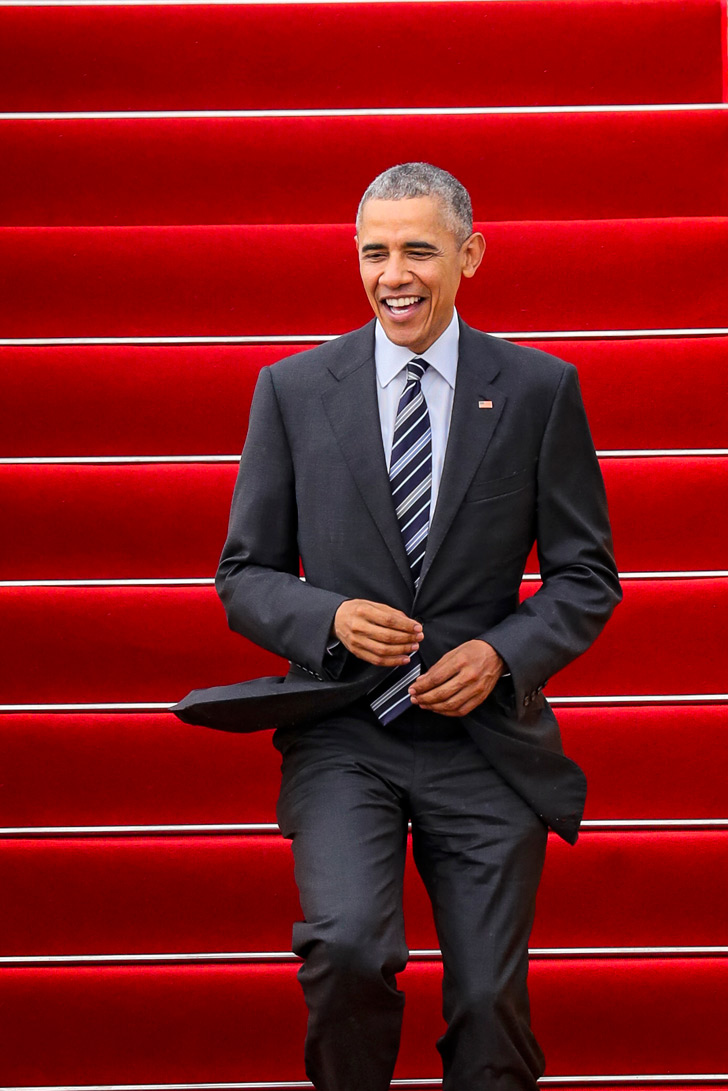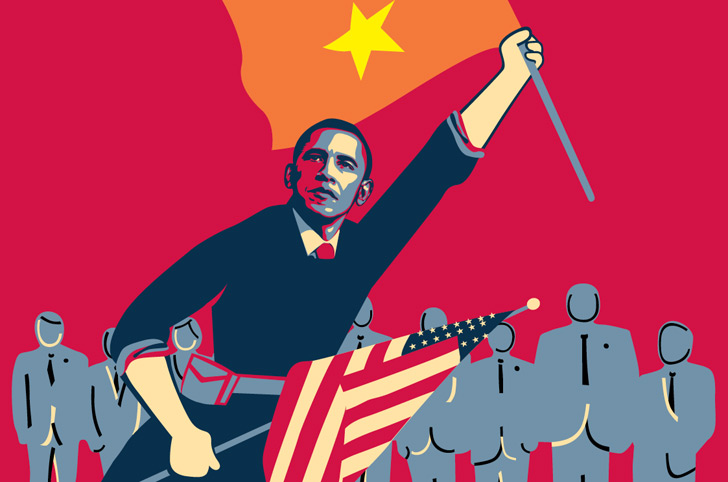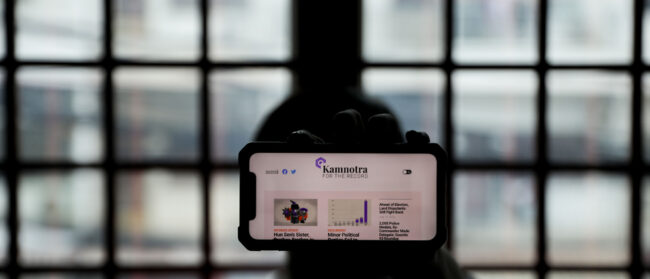As US President Barack Obama winds up his visit to Vietnam, we examine how the reluctant bedfellows are now partnering on trade and uniting in the face of Chinese aggression
When George W. Bush flew to Hanoi in 2006 for an Asia-Pacific Economic Cooperation summit, he wasn’t one for sightseeing. Between official engagements, the then president spent most of his time in a hotel room, emerging at one point for just 15 minutes to visit the Joint POW-MIA Accounting Command, a US task force that searches for the bodies of Americans still listed as missing from the Vietnam War. According to the New York Times, the tone of the visit was in stark contrast to when his predecessor, Bill Clinton, made a concerted effort to engage with local Hanoi residents and was welcomed by tens of thousands of people, who lined the city streets to catch a glimpse of the US leader.
This month, US President Barack Obama visited Vietnam before travelling to Japan for the annual G7 summit, making him the third sitting president to visit the country in the post-Vietnam War era. The milestone trip comes more than 40 years after the end of the decades-long conflict that left upwards of one million people dead. Tensions between the US and Vietnam have since de-escalated, and the two countries now enjoy joint trade, security and policy agreements.
And Obama, who is notably more charismatic than Bush, was expected to leave a more favourable impression. “The Vietnamese love Obama,” said Jamie Gillen, an expert on Vietnam at the National University of Singapore. “They just freakin’ love that guy… and really see him as a global citizen in a way that they’ve never seen an American leader before.”
In a March press conference, Vietnam’s Ministry of Foreign Affairs spokesperson Le Hai Binh spoke of the latest presidential visit in a positive yet more muted fashion, saying it would “contribute to enhancing the cooperation for peace and development in line with the Vietnam-US Comprehensive Partnership and raise the relations between the two countries to a new level.”
In 1995, a beaming Clinton announced the “normalisation” of relations between the two countries. Since then, annual US-Vietnam trade has gone from less than $500m to more than $45 billion in 2015, according to US Census Bureau data, and is set to ramp up further under the Trans-Pacific Partnership pact. Last year, the Vietnamese Communist party’s secretary general, Nguyen Phu Trong, met with Obama at the White House, a visit made significant by the fact that he was the first in this key position to do so. The two countries released a ‘Joint Vision Statement’ that touched on the nations’ commitments to maritime security, human rights and trade. “Obviously, there has been a difficult history between our two countries in the 20th century,” Obama said during a speech at the Oval Office. “What we’ve seen is the emergence of a constructive relationship that is based on mutual respect.”
Yet Obama’s Vietnam visit does not come until the final throes of his presidency, a fact that has not gone unnoticed. “Obama was expected to visit Vietnam last year,” said Oliver Turner, a reasearch fellow in political economy at the University of Manchester, UK, “but instead it was Chinese President [Xi Jinping] who did so. Visits by both in close succession may have provoked tensions and disagreements, including among the Vietnamese public which similarly disagrees on which way Vietnam should lean.”
In Vietnam, anti-China sentiment is high following recent territorial spats in the South China Sea that have sparked protests in the country. Tensions in the disputed waters picked back up recently, culminating in the ‘oil rig crisis’ of mid-2014, when Hanoi threatened Beijing over a Chinese oil rig that was placed near the Paracel Islands.
“Vietnam cannot resist that aggression on its own. It is becoming more and more vulnerable to that,” Nguyen Dinh Tang, head of the humanitarian NGO Boat People SOS, told Voice of America in 2013. “And it has to make a decision either to join with the US and Asean countries, to put together a common front to push back that aggression, or stay with China.”
Since then, Hanoi has chosen to move closer to Washington, allowing the latter to gain a crucial ally in the Obama administration’s ‘pivot to Asia’ and its geopolitical struggle with China. The current US administration has said it wants to promote freedom of navigation for its allies in the South China Sea, as well as for itself. Obama, at a US-Asean press conference in February, said that “the United States will continue to fly, sail and operate wherever international law allows”. Obama’s proselytising over Asia-Pacific geopolitics is a stark departure from his predecessor’s stance.
“Frankly, I think the South China Sea was the major, the key driver of the rapprochement between the US and Vietnam in the past couple of years,” said Alexander Vuving, a professor at the Asia-Pacific Centre for Security Studies. “If there had been no tension in the South China Sea, then we wouldn’t have had the progress in US-Vietnam relations.”
The US has shown its commitment to going toe to toe with China by pledging $425m of military aid to Asean countries in April under the Southeast Asia Maritime Security Initiative. And Vietnam is the only Southeast Asian nation to receive “increased aid for programmes that directly boost military-to-military relations” from the US between 2010 and 2015, according to the Council on Foreign Relations.
Despite Vietnam looking to the US as a military ally, there are still tensions. Hanoi has been pushing Washington to lift an arms embargo, a hangover of the war that prevents Vietnam from buying high-grade US military weaponry. Although the embargo was partially lifted in 2014, many US politicians are still holding out for change to what they see as a lacklustre human rights situation in Vietnam before they offer their support.

Vietnam has been known to silence political dissidents – activists, musicians, bloggers – with harsh jail sentences. In late March, a Hanoi court sentenced Nguyen Hun Vinh, a popular political blogger, to five years in jail after finding him guilty of publishing articles critical of Vietnam’s one-party state.
Shortly before Obama’s trip, the US assistant secretary for democracy, human rights and labour, Tom Malinowski, called for Vietnam to release jailed dissidents, saying that the US government “expressed our hope that this would be addressed and that some of the longstanding cases of concern would be resolved.”
Hanoi is wary of what it sees as “peaceful evolution”, or the US imposing its own values and norms on the Vietnamese government and its citizens through media statements and speeches. Washington’s push on human rights in Vietnam goes back to the normalisation of relations in 1995.
Despite Washington’s stance, some argue that Vietnam’s society is already liberalising. The internet, said Gillen, has helped foster the exchange of ideas within the communist state. “In many ways there’s a more vibrant political culture than ever before,” said Gillen, “because the internet is so widely used by Vietnamese people and so widely used for political purposes – to make their opinions known, or ask questions, or call out politicians and politics and things.” Gillen added that politics is still a touchy subject among many Vietnamese, due to apathy and fear of government reprisals. “While it’s not a common practice for Vietnamese that you’ve just hung out with to start talking politics with you, I think there are more [political] channels in Vietnam [now].”
Bill Hayton, an associate fellow of the Asia programme at London-based think tank Chatham House, said that the Vietnamese share a distinct cultural affinity with their US counterparts. “I think Vietnam’s civil society is one of the most pro-American civil societies on the planet,” said Hayton, “which some people would find strange given the history of the war and everything.”
Hayton, the BBC’s correspondent in Vietnam from 2006 to 2007 and the author of Vietnam: Rising Dragon, said that anti-American sentiments are difficult to find in Vietnam. “The US ambassador can walk around without much security protection,” he said. “It’s a place where I’m sure Obama [would] be given a popstar welcome.”
Mai Khoi is a Vietnamese singer and songwriter who, along with about two dozen others, ran for an independent seat in her country’s congress on 22 May. She said that the government has made the process of performing increasingly difficult for her, by requiring official approval to sing, organise or advertise in public. Khoi, who has penned controversial tunes such as “Saigon Boom Boom” and “Selfie Orgasm”, said Obama could use his political prowess to change Vietnam.
“I think Obama is a person who can give some change for Vietnam,” said Khoi. “He can trade something with the Vietnamese government… If America cares about democracy of the Vietnamese, they will force the government here to change the law.”



